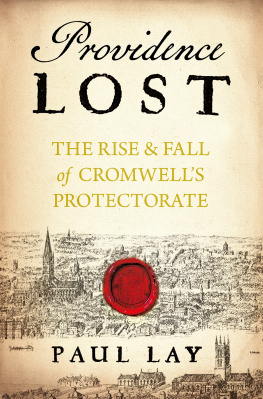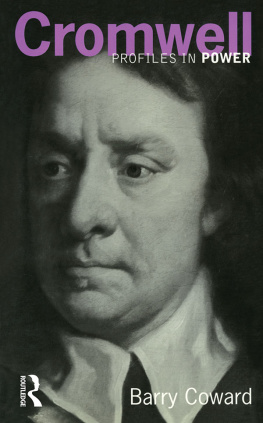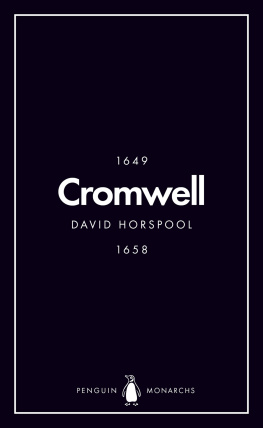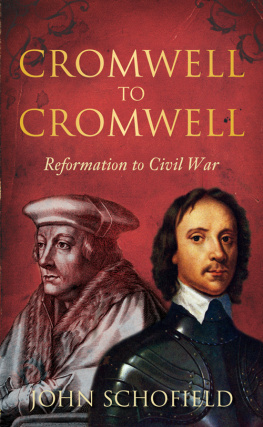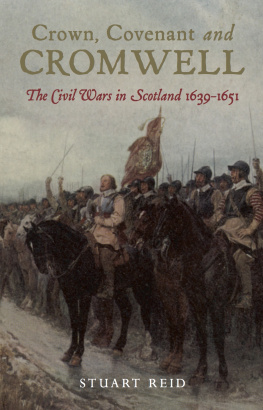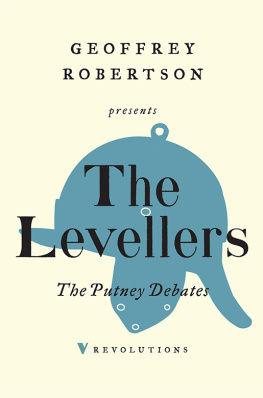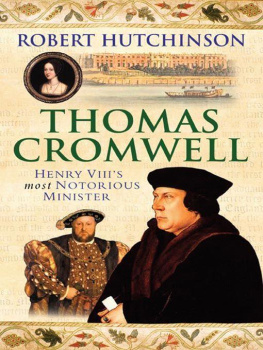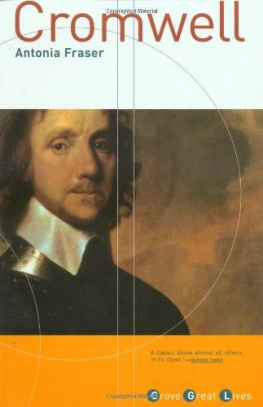Providence
L O S T
Providence
L O S T
THE RISE & FALL
of CROMWELLS
PROTECTORATE
PAUL LAY
AN APOLLO BOOK
www.headofzeus.com
This is an Apollo Book, first published in the UK in 2020 by Head of Zeus Ltd
Copyright Paul Lay, 2020
The moral right of Paul Lay to be identified as the author of this work has been asserted in accordance with the Copyright, Designs and Patents Act of 1988.
All rights reserved. No part of this publication may be reproduced, stored in a retrieval system, or transmitted in any form or by any means, electronic, mechanical, photocopying, recording, or otherwise, without the prior permission of both the copyright owner and the above publisher of this book.
A catalogue record for this book is available from the British Library.
ISBN (HB): 9781781852569
ISBN (E): 9781781852576
Cover design: Anna Green
Images: Engraving by Nathaniel Whittock from a drawing of London by Antony van den Wyngaerde (c. 154350) copy of originals in Bodlean Library. Impression of seal used by Oliver Cromwell The Armoury of St Jamess.
Head of Zeus Ltd
First Floor East
58 Hardwick Street
London EC 1 R 4 RG
WWW . HEADOFZEUS . COM
To the two Barrys: Barry Dutton and Barry Coward
Contents
A Puritan Peak
P ROVIDENCE ISLAND , a volcanic dot lying in the heart of the Indies and the mouth of the Spaniards, was, for little more than a decade, the furthest outpost of English puritanism. The settlement, 110 miles off what is now the Caribbean coast of Nicaragua, was founded on Christmas Eve 1629, when Philip Bell, former governor of the Somers Isles modern Bermuda disembarked from his ship, the Robert , to lead an advance party in prayer on its shores. This utterly beautiful eight square miles of light breezes, palm trees, dense scrub and sheltered coves, is dominated by the volcanic Peak, from where steep valleys descend, peppered with boulders of hardened lava, a result of the islands explosive surge to the surface more than 10 million years ago.
Providence was settled just as the cause of puritanism in England suffered a desperate blow in the form of the Personal Rule of Charles I. The Stuart king had ruled without recourse to Parliament, by royal prerogative, his head turned by the innovations of continental absolutism, an idea of immense and obvious attraction to monarchs, which would deliver its apotheosis in the shape of the French Sun King, Louis XIV. Peace between England and Spain, the papacys supreme defender, was soon to break out after years of conflict and tension, much to the chagrin of a small group of Puritan grandees, for whom the Catholic Habsburg foe hegemonic Black Spain was the Antichrist. They would need to look beyond Albions spiritually barren land to advance their cause.
Known to the Spanish as Catalina, Providence Island was named by Bell for that abiding concept of English Protestantism, attracting the attention of an elite group raised on the high Elizabethan buccaneering tales of Drake, Hawkins and Ralegh. Like their violently illustrious predecessors, they took their militant Protestantism to the Spanish New World or at least encouraged others to do so. Consisting of a noble, wealthy Puritan clique of twenty adventurers, they met at Brooke House in the City of London, home of the wealthiest and youngest backer of the scheme, Robert Greville, Lord Brooke, then barely in his twenties, who had been the adopted successor of Fulke Greville, the 1st Lord. There they established the Providence Island Company in the summer of 1630 with a working capital just shy of 4,000. Some of the grandees, including Robert Rich, 2nd Earl of Warwick, who employed Bell, had already been involved in the settlement of Virginia and the Somers Isles. His father, the 1st Earl, had been a guarantor of the last expedition of Walter Ralegh, the hero of Elizabethan imperial Protestantism, who had fallen fatally foul of James, the first of the Stuart monarchs of England and father of Charles, in 1618. The battle lines that would contest the coming Civil War were slowly being drawn.
The Providence Island Companys treasurer was the short and pudgy John Pym, who, despite appearances, became a vigorous and eloquent defender of parliamentary rights in the face of Charles Is incursions. He had played an important role in the passing, in 1628, of Edward Cokes Petition of Right, lineal descendant of Magna Carta and habeas corpus, which defended a subjects liberties as long as they werent Catholic from an overweening monarch. Such men were determined to resume the battles of their Elizabethan forebears. Representatives of an elect within an elect nation, they were to go out into the world, with their providential God removing all obstacles set before them. Rich harvests of Spanish gold and land, abundant in a virgin New World, would be theirs and would provide the means to fight back against the infringements of the king. Victory abroad would signify divine approval for the coming battle at home, where their triumph would complete Gods design for His anointed nation of the New Testament: England, the new Israel.
Divine disapproval of Charles Is misrule was already apparent to his Puritan opponents; the cloth trade, the foundation of Englands prosperity for centuries, in which many of the Providence grandees had a major financial stake, had collapsed as the brutalities of the Thirty Years War harrowed central Europe. Charles kept his distance from this bloody sectarian conflict, to the disgust of Puritans, who had urged him to back Englands besieged fellow Protestants, not least his sister, Elizabeth, whose husband, Frederick V of the Palatinate, had lost Bohemia to the forces of the Holy Roman Emperor Ferdinand II and the Catholic League. As a consequence of his inaction against the will of a Protestant God plague had swept England in 1625 and 1630 and poor harvests stalked the land. The Lord would not provide for those who abandoned the true faith. Many Puritans were driven by necessity from their barren home to seed new worlds, prosperous and free from popery. Oliver Cromwell, an East Anglian farmer with a gentlemans education, had considered such a move.
The Providence Company nonetheless sought a royal charter from the monarch whose rule they so mistrusted. They informed Charles of an island convenient to receive a fleet that has any design on any leeward part of the Indies, or Cartagena, Portobello, the Bay of Honduras, Hispaniola, Cuba, or Jamaica. And they emphasized its strategic value: the winds and currents around Providence Island ensured that ships heading in and out of Cuba, Spains jewel in the Caribbean, with its magnificent harbour of Havana, would have to pass close to its high cliffs and protective shoals. From there, the English could harass and intercept ships carrying wealth from the New World to the Old. The greatest prize of all was the flota , the Spanish plate fleet that once a year shipped the immense wealth of Mexico and the Peruvian silver mines of Potos back to Europe.
Charles, relieved to get this Puritan faction off his back, issued a patent on 4 December 1630 for the Company of Adventurers of the City of Westminster for the Plantation of the Islands of Providence or Catalina, Henrietta or Andrea. There is a hint of cynical fawning in the final words of the name the company gave itself, renaming the island adjacent to Providence, known to the Spanish as San Andrea, in honour of Charless French and Catholic wife, Henrietta Maria. In return, Charles demanded one-fifth of the companys future profits.
Providence, however, was to be no Bermuda or Barbados semi-removed and clement in the eastern Caribbean though the schemes backers were convinced of the islands innate prosperity, which would bloom when watered by the godly. The grandees had little practical experience of the Caribbean. They were armchair adventurers and the project was to be blighted by their insistence, until too late in the day, that it was they who would remain sole owners of land on the island, hindering the humbler ambitions of those settlers who put their lives on the line for the Companys good and asked only for a plot to call their own their skin in the imperial game. Give a man the secure possession of a bleak rock and he will turn it into a garden, wrote the agriculturalist Arthur Young. Give him a nine years lease of a garden and he will convert it into a desert.

